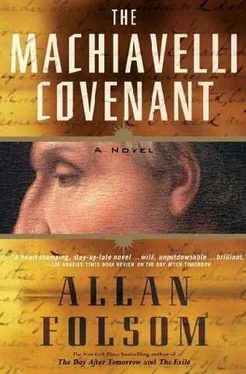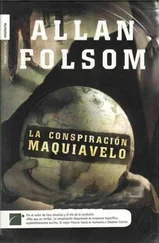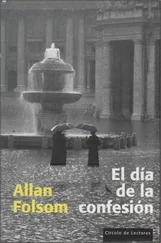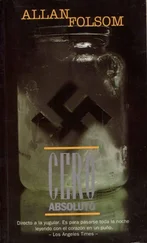"No."
Marten didn't get it. What were they doing? There was no homicide cop in the world who couldn't tell murder from suicide, at least not the way Lorraine Stephenson had done it. So what were they really going after, and why? Was it possible they too were onto the idea that Caroline might have been murdered? If so, had Stephenson been a suspect? If she had been, maybe it was the police who had been in the passing cars keeping an eye on her home. Maybe they had even seen him sitting in his car, then jump out to accost her as she stepped from the taxi and follow after as she ran off down the street. If that were the case, they might think he had been involved in Caroline's death. If they did, he wasn't going anywhere for some time and showing them the notarized letter she'd signed giving him access to her and her husband's private affairs could make things even worse by suggesting he had coerced her into writing it even though he hadn't even been in the country when she'd done it. Coerced her because he had something else in mind once she was dead, something in her estate or something political her husband had been involved with.
He knew all too well that if the police had any reason to believe he had been involved with Caroline's death or the death of Dr. Stephenson, they would charge him as an accessory and book him. In the process he would be fingerprinted and his prints would be run through the local data bank, the AFIS, the Automated Fingerprint Identification System; and then the national FBI data bank, the IAFIS, the Integrated Automated Fingerprint Identification System. At the same time they would query Interpol. If they did they would find he was a former police officer because his prints would still be on file, and ID him under his real name, John Barron. After that it wouldn't be long before those on the LAPD still looking for him knew about it. To them he remained a "person of primary interest" on a Web site called Copperchatter.com -a chat room of cops talking to cops around the world, in cop vernacular, with cop humor, and cop vindictiveness-with his name freshly posted every Sunday night by someone using the moniker Gunslinger but who he knew was Gene VerMeer, a veteran LAPD homicide detective who despised him for what had happened in L.A. those few years earlier, and who had created the Web site just to find him. Find him, and then keep him under close surveillance until Gunslinger VerMeer or some of his cronies showed up to take care of him once and for all.
"How did you know Caroline Parsons?"
Now it was Detective Monroe's turn, and she moved from where she stood by the door to lean beside what appeared to be a large mirror mounted on the room's back wall. It wasn't a mirror at all but rather a one-way glass with an unseen observation room behind it. Who, or how many, were behind it watching him Marten had no way to tell.
"I'd met her a long time ago in Los Angeles," Marten said calmly, trying to stay as matter-of-fact as he could. "We became friends and stayed friends. I knew her husband as well."
"You fuck her a lot?"
Marten bit his tongue. He knew they were trying to get to him any way they could. That it came from a woman made no difference.
"How many times?"
"We did not have a sexual relationship."
"No?" Monroe half smiled.
"No."
"What did you want to talk to Dr. Stephenson about?" Herbert took over again.
"I told you before. The death of Caroline Parsons."
"Why? What did you expect she could tell you?"
"Mrs. Parsons had become seriously ill very quickly and nobody seemed to know exactly what it was. Her husband and son had just been killed in a plane crash and she was an emotional wreck. She called me in England and asked me to come. She died soon after I arrived."
"Why did she ask you to come?"
Marten glared at Herbert. "I told you, we were close friends. You have anyone who would call you like that? Somebody you'd want to be with in your last hours?"
Marten wasn't playing tough guy, he just wanted them to see he was angry. Not just because of the questions and the way they were asking them but so they would see and hear and feel the depth of his relationship with Caroline, that it had been and still was, genuine.
"And since Dr. Stephenson was her primary physician," Monroe came toward him, "you wanted to hear from her what had happened."
"Yes."
"So you called and called but you never got through to her. It made you mad. How mad?"
"She finally did return my call."
"And what did she tell you?"
"That the things I wanted to talk about were privileged information between doctor and patient."
"That was all?"
"Yes."
"And between eight and nine last evening you were just driving around the city?" Now it was Herbert again.
"Yes."
"Alone?"
"Yes."
"Where?"
"I told you, I don't know."
"Anybody see you?"
"I don't know that either."
"Did you kill her?" Monroe snapped suddenly.
"No."
Herbert kept the pressure on: "You're an American but you live and work in England."
"I graduated from the University of Manchester with an advanced degree in landscape architecture. I liked it there and decided to stay. I work for a small firm, Fitzsimmons and Justice, where I design formal gardens and other landscape projects. I have a British passport and consider myself an expatriate."
Herbert got up from the table. As he did, Marten saw him exchange the briefest glance with Monroe. What it told him was startling. They had not come after him because they thought Caroline had been murdered or because they thought he or Dr. Stephenson had been involved with it or because he had been seen chasing after Stephenson in the moments before she killed herself. No, they had picked him up simply because of the phone calls he'd made to her. It meant they were certain she had been murdered. But that was impossible because he had been right in front of her when she shot herself. So why did they believe what they did?
The only possible explanation was that someone had gotten to her body very soon after he'd left and done something to it to make it appear she had been killed. Maybe taken her gun from the scene and then shot her in the face with a weapon of much larger caliber, destroying the evidence of the suicide and making it look like murder and giving the investigators and the coroner little reason to suspect anything else. But why? Unless the motive for the suicide of a woman of her prominence would have been far more carefully scrutinized than if she had simply been killed.
Marten looked to the detectives. He wanted to press them for details about the state of Dr. Stephenson's body when they'd found it, but he didn't dare. Right now it seemed they were still pretty much in the dark about what had happened. Consequently they had nothing they could hold him on, so showing any curiosity at all would only pique their interest, make them wonder why he wanted to know and start in on him again. So best to get off it while he could.
"I think I've answered your questions," he said respectfully. "If you don't mind, I would like to go."
Herbert studied him for a long moment, as if he were looking for something he had missed. Marten held his breath, afraid that this might be when they would ask for his fingerprints just to make certain he wasn't wanted somewhere.
"How long do you intend to stay in D.C., Mr. Marten?" he said, instead.
"Caroline Parsons's memorial service is tomorrow. After that I don't know."
Abruptly Herbert handed him his business card. "You check with me before you go anywhere outside the city. You understand?"
"Yes, sir." Marten tried not to show his relief. For now, at least, they were letting him go.
Monroe walked toward the door and pulled it open. "Thank you for your cooperation, Mr. Marten. To your left and down the stairs."
Читать дальше












